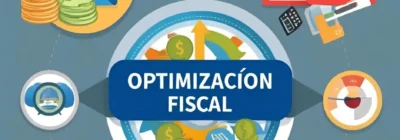HELP FOR SELF-EMPLOYED #COVID-19
admin2024-10-13T07:40:23+00:00The Cessation of Activity for Self-Employed Workers benefit is one of the measures that the government has approved to face the economic impact of the coronavirus.
It is aimed at the self-employed who have reduced or even paralyzed their activity as a consequence of the expansion of COVID-19 and the declaration of the state of alarm.
The self-employed who have had their activities suspended or their income reduced by at least 75% compared to the previous semester will be entitled to this aid.
To collect it, it is not necessary to unsubscribe from the Treasury and Social Security, or continue paying the self-employed fee.
Who can request this extraordinary benefit?
– Any self-employed worker: natural person, partnership partner, administrators, cooperative partner, community of goods partner, self-employed collaborator …
– Whose activity has been suspended since March 14 due to the declaration of the state of alarm.
– Or if your March turnover is reduced by at least 75% compared to the average turnover of the previous semester. If you do not register the required 6 calendar months, the assessment will be made taking into account the period of activity that you have registered.
Amount of the benefit for cessation of activity COVID-19
The benefit to be received will be 70% of the regulatory base. The regulatory base is the average of the contribution base of the previous 12 months.
For the self-employed who have contributed less than 1 year, the regulatory base will be the minimum contribution base of the group to which the worker belongs.
The self-employed person who meets the requirements will be entitled to receive the benefit with effect from March 14, 2020. On that day, RD 463/2020 came into force, which declared a state of alarm.
For how long can it be perceived?
As it is an extraordinary benefit, it will be received for 1 month. If the alarm status lasts more than 1 month (more than April 13, 2020), its duration will be extended until the last day of the month in which this alarm situation ends.
Necessary requirements to access the benefit
1. You must be affiliated and registered in the self-employed regime or, where appropriate, in that of sea workers on the date of the declaration of the state of alarm (03/14/2020).
2. If your activity has not been suspended due to the declaration of the state of alarm, you must prove the reduction in your billing in the month prior to which the COVID-19 activity cessation benefit is requested, at least 75% in relation to the average billing for the previous semester.
3. Be up-to-date in the payment of contributions to Social Security. This is a requirement to receive any benefit. If you are not, they allow you to regularize your situation in 30 days. When you pay, you can access this feature.
It is not necessary to meet a minimum contribution period. You only have to be registered in this special regime and up to date with the payment of the self-employed fees.
Should we unsubscribe from the Treasury and Social Security?
No. The self-employed who must justify the reduction of at least 75% of their income must remain registered in their economic activity in the Treasury and Social Security to be entitled to this extraordinary benefit.
For those whose activity has been suspended by the declaration of the state of alarm, it is not compulsory to stay high. The only thing required is to be registered as of 03/14/2020.
Do I have to pay contributions while receiving the cessation of activity benefit?
No. During the time of receipt of the benefit there is no obligation to quote by the self-employed, although this period will be considered as listed.
For the calculation of the self-employed quota to be paid each month, the days of that liquidation period in which you are entitled to receive the extraordinary benefit will be excluded.
Since the mutuals will grant the benefit retroactively (from March 14), Social Security will continue to pay the quota normally. Once the mutual company informs you that it has granted the benefit, it will regularize the contributions, ex officio, with the consequent refund of quotas.
Should we give up the bonuses?
No. The decree states that the time this exceptional benefit is received will count as effectively quoted. For this reason, the self-employed who are receiving these grants will be able to request it and they will not lose the bonuses conditioned to the maintenance of the activity, as is the case of the flat rate.
Since when can you request this extraordinary benefit?
– Freelancers forced to close due to the declaration of the state of alarm: since the decree came into force.
– Those who have to present supporting documentation of the drop in monthly billing, from the moment they can present this documentation.
How to apply?
The management of this benefit corresponds to the Accident Mutual Societies Work and Professional Diseases.
You must request it in the mutual with which you have protection for professional contingencies. If you do not remember your mutual, you can consult it in the self-employed registration document.
AID FROM THE AUTONOMIC ADMINISTRATIONS
Andalusia
The Andalusian Government will allocate 600 million euros to lines of credit and guarantees for SMEs and the self-employed. In addition, the regional administration will guarantee 100% of the loans to SMEs, raising the total 80% to which the Government of Pedro Sánchez has committed.
On the other hand, the Andalusian Government guarantees payment to companies that provide services to the administration, since payments to suppliers will not be suspended. This measure includes companies that provide cleaning, surveillance or security services.
Asturias
Asturias will compensate with an aid of up to 400 euros per month to those self-employed who are prohibited from continuing to carry out their activity due to the state of alarm. In this way, the administration intends to offset the fixed costs of this group.
Furthermore, as in Andalusia, the Principality of Asturias has deferred tax payments for self-employed and SMEs affected by the coronavirus. Small entrepreneurs in the region may defer these payments without interest for a period of six months. This is a measure that extends the one announced by the Ministry of Finance.
Balearic and Canary Islands
In the Balearic Islands, the autonomous government has announced an injection of 50 million euros to give liquidity to the self-employed and small and medium-sized companies. In addition, the administration has promised to ask the banks for a moratorium on mortgages for these groups.
For its part, the Canary Islands Government has decided to supplement the cessation of activity benefit that the self-employed affected by Covid-19 will receive. Thus, if the benefit announced by Social Security was equivalent to 70% of the regulatory base, the Canary Islands will supplement 30% for the self-employed of the islands.
Cantabria
Cantabria will launch the “resistance check”, a benefit that the self-employed and SMEs may request electronically with a budget of 10 million euros. To qualify for it, they must be registered prior to March 14. Depending on the number of workers and the closing of businesses, the amount they will charge will be variable.
Thus, the self-employed and micro-companies with a single worker may charge 150 euros per week, an amount that will rise to 225 if the SME has between two and five employees. If the company has between six and nine workers, the employer will charge 300 euros per week.
Castilla – La Mancha and Castilla y León
In Castilla – La Mancha they have chosen to suspend employment programs and allocate the 10 million euros of the Self-Employment Plan to establish a benefit for the self-employed.
The Government of Castilla y León has put aid for the self-employed and SMEs on the table to increase their workforce if the coronavirus causes them an additional workload. In addition, it will reduce Social Security contributions to “consolidate” self-employment.
The Castilian administration in León seeks to reward entrepreneurship and for this reason, grants of up to 5,000 euros will be allocated to the self-employed who must cease their activity and want to start a new business. The Government will also provide liquidity to SMEs and the self-employed with a budget of 20 million euros.
Catalonia and Valencian Community
The Catalan Government will allocate a budget of 7.5 million euros to aid for the self-employed who can demonstrate a drastic drop in turnover due to Covid-19. The aid may be up to 2,000 euros and the Department of Labor will compare the income of this month of March with that of last year, to recognize or not the benefit.
In the Valencian Community, aid will range between 750 and 1,500 euros depending on whether there has been a decrease in turnover or whether the self-employed worker has had to cease his activity. For this, the Generalitat will allocate 57 million euros.
In addition, like other autonomous communities, financing lines will be set up for this group at zero rate and with a two-year grace period, guaranteed by the Reciprocal Guarantee Society. Some lines that complement those approved by the central government.
Extremadura and Galicia
Extremadura has launched an initiative that can welcome freelancers and employees. It is a volunteer program that cares for minors whose parents have to continue working during the health crisis. In addition, the self-employed can split or defer the tax payments that are settled in the autonomous administration.
The Xunta de Galicia has also approved the postponement of taxes that the self-employed pay in the autonomous community. In addition, it has launched a line of loans of up to 200,000 euros for the self-employed.
Communityfrom Madrid and Navarra
The self-employed in the Community of Madrid can now apply for grants of up to 3,200 euros if they attach a justification for the reduction in income and if they commit to being in the self-employed regime for 12 months. The regional government has also reduced some taxes for the self-employed, such as the IBI or the Economic Activities tax.
Navarra has suspended the fractional payment of personal income tax that must be paid by the self-employed. In the same way, the regional government has suspended the payment of tax debts and a deferment of the debts of SMEs and self-employed.
Basque Country
The Basque Government has announced a program to help the self-employed in paying contributions and also in business rentals. Also, as in other regions, lines of credit and financing will be launched to facilitate liquidity for SMEs.
Most of the autonomous governments have chosen to make the financing of the self-employed more flexible and if they have not already done so, they will report on the conditions and processes in the coming days.




